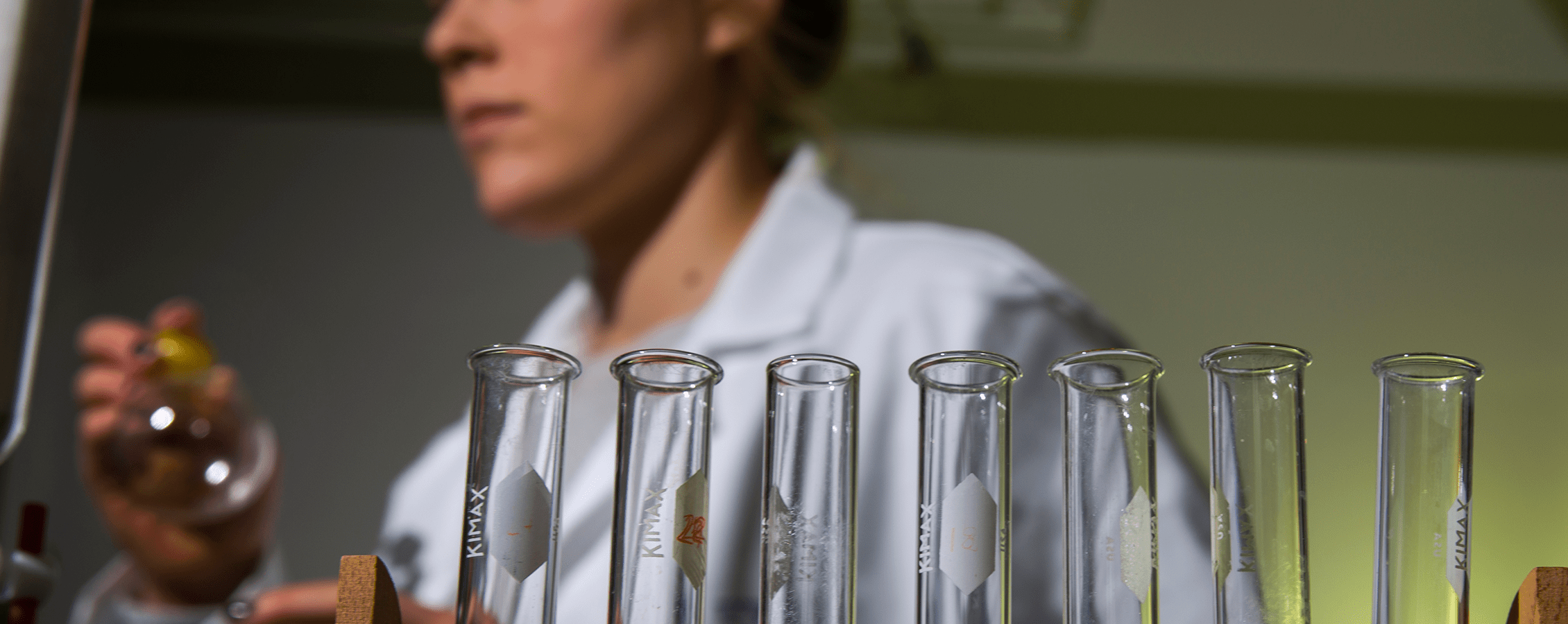DEPARTMENT OF CHEMISTRY (CHEM)
 Are you curious about the science behind everyday life—from the medicines we take to the materials we use? At UW–Whitewater, the Chemistry Department invites you to turn that curiosity into a career. Our program blends rigorous academics with hands-on experiences, preparing students to solve real-world problems through the lens of chemistry.
Are you curious about the science behind everyday life—from the medicines we take to the materials we use? At UW–Whitewater, the Chemistry Department invites you to turn that curiosity into a career. Our program blends rigorous academics with hands-on experiences, preparing students to solve real-world problems through the lens of chemistry.
From your first year, you’ll be immersed in lab-based learning, collaborative projects, and faculty-mentored research. Whether you're analyzing proteins, exploring green chemistry, or working with nanomaterials, you’ll gain practical skills using modern instrumentation, contribute to cutting-edge projects, and present your findings at conferences across the country. Small class sizes and personalized advising ensure you’re supported every step of the way.
We offer a variety of degree tracks—including ACS-certified options—to match your interests and career goals. Students engage in internships, study abroad, and leadership roles in Chem Club, while also co-authoring publications and building strong communication and professional skills. You’ll graduate ready for careers in healthcare, industry, education, or advanced study.
At UW–Whitewater, chemistry isn’t just a major—it’s a launchpad for discovery, innovation, and impact. Join a community where your passion for science can thrive.
Contact us
Jessica Bonjour
Department Chair & Professor
Phone: 262-472-1088
Location: Upham Hall 220A
Julia Rowehl
Department Assistant
Phone: 262-472-1070
Location: Upham Hall 220
UW-Whitewater offers students a wide variety of scholarships, both through the university, individual colleges, and departments. The Department of Chemistry has a number of scholarships and awards geared specifically toward our students, including:
- John W. Brooks
- Paul Wenaas (Junior)
- AA Upham Science Scholarship
- Y W Fok Scholarship
- Goldwater Scholarship
More information about these and other scholarships is available through the scholarship portal.
The Department of Chemistry supports a number of student clubs and organizations, including Chemistry Club and our Double Helix Learning Community.
Careers
Opportunities for UW–Whitewater Chemistry Majors
Internships are a powerful way to apply your classroom knowledge, gain hands-on experience, and build a professional network. The Chemistry Department at UW–Whitewater partners with top companies offering exciting internship opportunities in various chemistry fields. Here's a look at some of the companies you could intern with:
AbbVie
Location: Lake County, IL (approx. 1.5 hours from Whitewater)
Industry: Biopharmaceuticals
Chemistry Focus: Pharmaceutical development, chemical engineering, analytical chemistry
Epic Resins
Location: Palmyra, WI (14 minutes from Whitewater)
Industry: Specialty Chemicals
Chemistry Focus: Epoxy and polyurethane resin formulation
SC Johnson
Location: Racine, WI (1 hour from Whitewater)
Industry: Consumer Goods
Chemistry Focus: Product development, formulation chemistry, R&D
MilliporeSigma
Location: Milwaukee, WI & Sheboygan Falls, WI
Industry: Life Sciences
Chemistry Focus: Analytical chemistry, biochemistry, chemical manufacturing
Hydrite Chemical Co.
Location: Brookfield, WI (1 hour from Whitewater)
Industry: Chemical Manufacturing
Chemistry Focus: Quality control, technical services, regulatory affairs
Evonik Industries
Location: Milton, WI (15 minutes from Whitewater)
Industry: Specialty Chemicals
Chemistry Focus: Polymer chemistry, coatings, process engineering
Fort Atkinson HealthCare
Location: Fort Atkinson, WI (20 minutes from Whitewater)
Industry: Healthcare
Chemistry Focus: Clinical chemistry, lab technology
U S Chemical
Location: Watertown, WI (30 minutes from Whitewater)
Industry: Cleaning and Sanitation Chemicals
Chemistry Focus: Formulation chemistry, product testing
DeVere Chemical
Location: Janesville, WI (30 minutes from Whitewater)
Industry: Industrial Cleaning Chemicals
Chemistry Focus: Formulation, manufacturing, regulatory compliance
Nestlé USA
Location: Burlington, WI or Eau Claire, WI
Industry: Food & Beverage
Chemistry Focus: Food chemistry, quality assurance, product development
Why Intern?
- Apply your chemistry knowledge in real-world settings
- Build your resume and professional network
- Discover your career interests and strengths
- Many internships lead to full-time job offers!
Ready to Get Started?
Visit your Chemistry Department advisor or talk with our Internship Coordinator, Dr. Kumpaty, to learn about the options and next steps.
Explore our academic programs
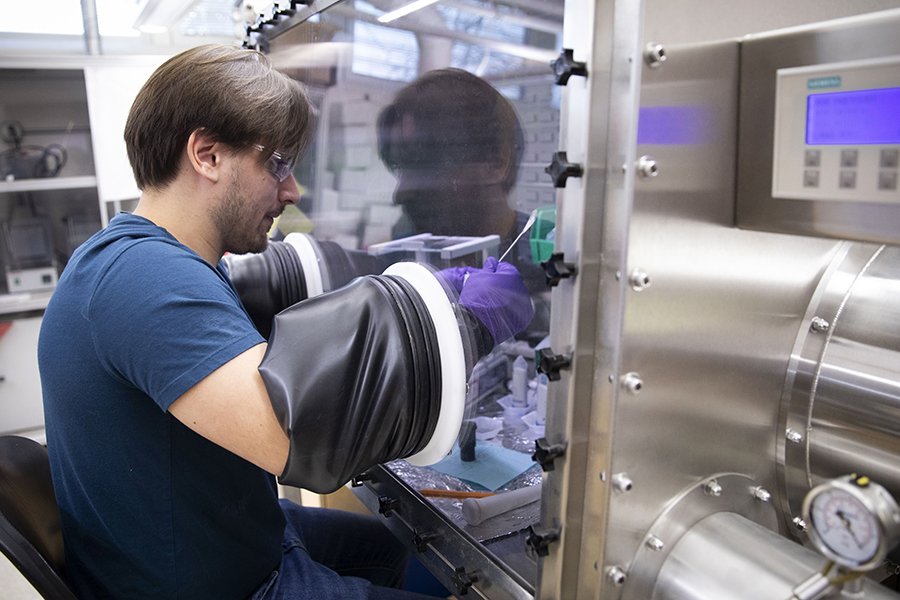

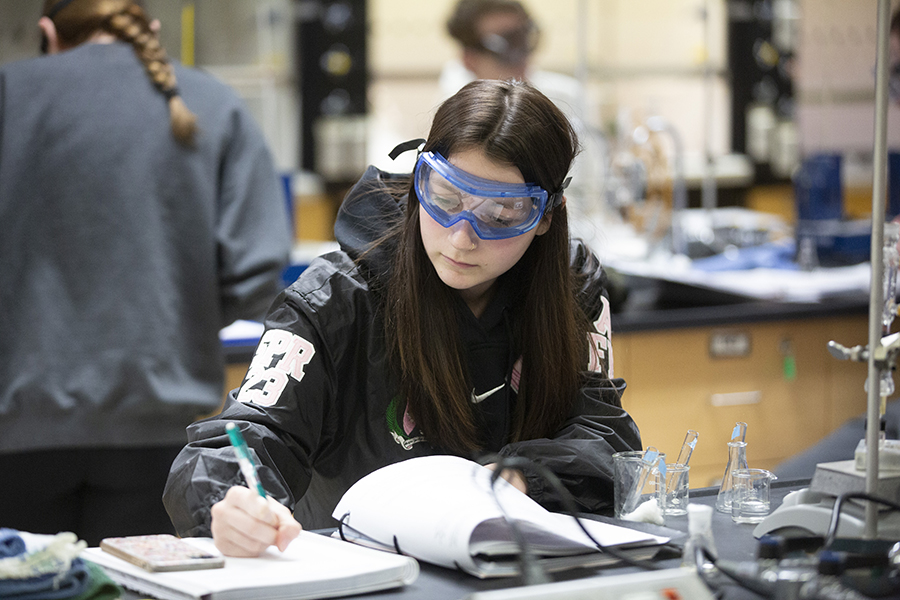
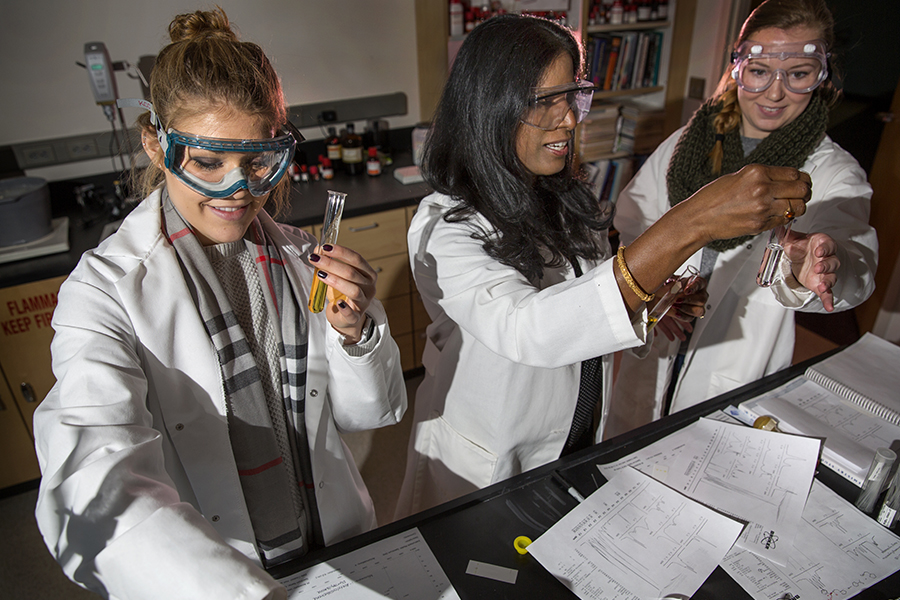
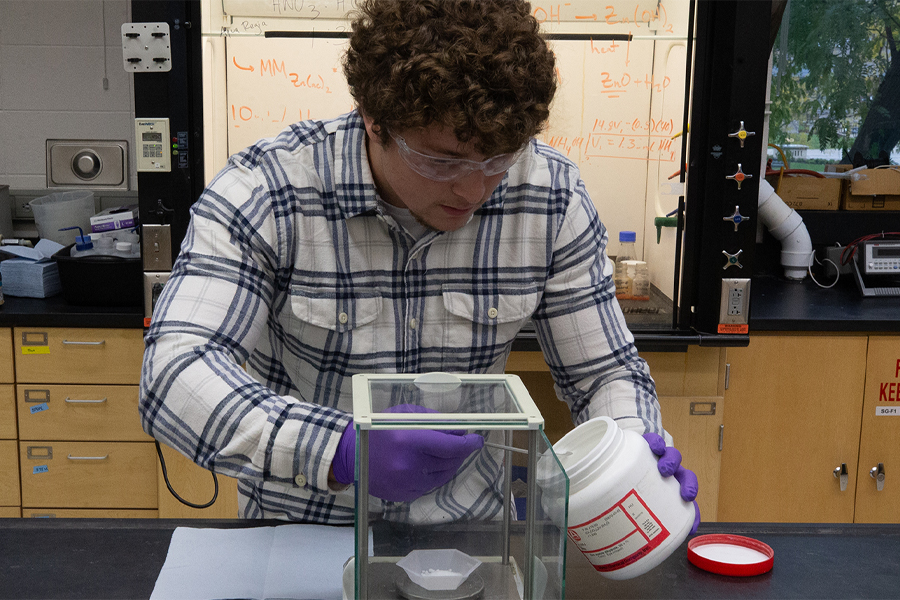
Chemistry
Major/Emphasis, MinorHave a love for chemistry? Interested in what makes up the world around you? Study Chemistry at UW-Whitewater, where you will get to explore the many different aspects of chemistry through courses on organic and inorganic chemistry, laboratory science, physical chemistry, quantitative reasoning, and more.
Chemistry (Biochemistry)
Major/EmphasisCombine your interest in biology with your interest in chemistry with an emphasis in Biochemistry here at UW-Whitewater. You will take courses focused on subjects related to both sciences, such as organic chemistry, physical chemistry, wildlife ecology, animal physiology, and more.
Chemistry (Business for Industry ACS Certified)
Major/EmphasisRise quickly into a leadership position in a chemistry-centered career. The Business for Industry ACS Certified Chemistry emphasis will prepare you for the business side of careers through courses on macroeconomics, experimental chemistry, methods of analysis, organic and inorganic chemistry, and more.
Chemistry (Liberal Arts)
Major/EmphasisWith a Liberal Arts Chemistry emphasis, you can study how physical science ties into the study of humanities with courses on subjects such as physical chemistry, organic chemistry, experimental chemistry, and more.
Chemistry (Professional ACS Approved)
Major/EmphasisA Professional American Chemical Society (ACS) Approved Chemistry emphasis will provide you with a deeper and more holistic understanding of chemistry on a professional and career-oriented level. You will take courses on a variety of subjects, such as green chemistry, physics, organic chemistry, data analysis, and more, all to give you the proper training to enter the field of professional chemical studies.
What does my contribution directly support?
How much money can make an impact?
Donate now to support the Department of Chemistry at UW-Whitewater
If you're interested in starting a scholarship or making a pledge, please contact the UW-Whitewater Foundation, Inc at 262-472-1105 or through email at foundation@uww.edu.

